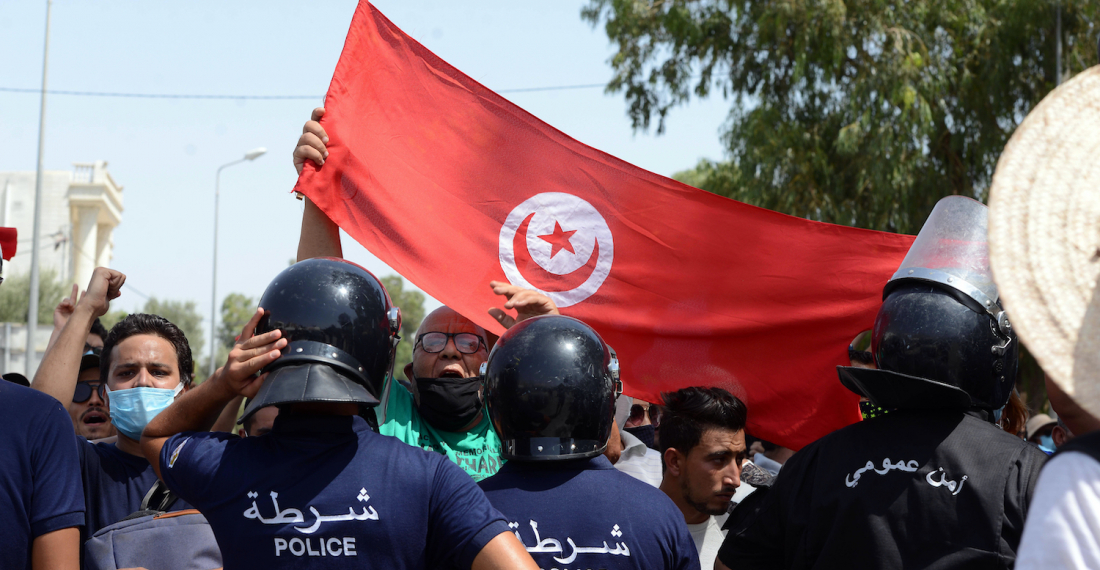Tunisia's crisis intensified on Monday (26 July) as clashes erupted in front of the Tunisian parliament, the Assembly of the People's Representatives (APR), the day after President Kaïs Saïed suspended its activities and dismissed the prime minister. The army have surrounded the APR and have also reportedly been deployed to the Government Palace, which serves as the office of the Tunisian prime minister, in the state capital, Tunis.
On Monday morning, the army refused to allow Rached Ghannouchi, the speaker of parliament and leader of the main elected party, Ennahda, access to the APR. Bottles and stones were thrown in front of the parliament, where several hundred supporters of President Saïed prevented supporters of Ennahda from approaching Ghannouchi, who had staged a sit-in protest after being refused entry. On Sunday, Ghannouchi had already stated, "This is a coup against the revolution and the constitution," adding "the Tunisian people will defend the revolution".
Later in the day, Saïed announced in a statement the dismissal of his defence minister, Ibrahim Bartagi, and the government spokesperson, Hasna Ben Slimane, who was also minister of the civil service and acting minister of justice.
The crisis began late on Sunday when Saïed invoked the constitution to dismiss the prime minister, Hichem Mechichi, suspend parliament for 30 days, and remove immunity from members of parliament, saying he would govern alongside a new premier.
Saïed's moves came after a day of protests in many cities of the country against the government and Ennahda, following the serious deterioration of the health situation as Covid-19 cases reached an all-time high with public hospitals struggling to cope. This increased the mounting popular anger created by the tense political situation, caused by disputes between the president, prime minister and speaker of parliament over the management of the pandemic.
Whilst many have referred to the situation as a "coup", Saïed – a former constitutional law professor – insists that his moves are inline with the constitution, which allows such actions to be taken in the face of "imminent danger".







